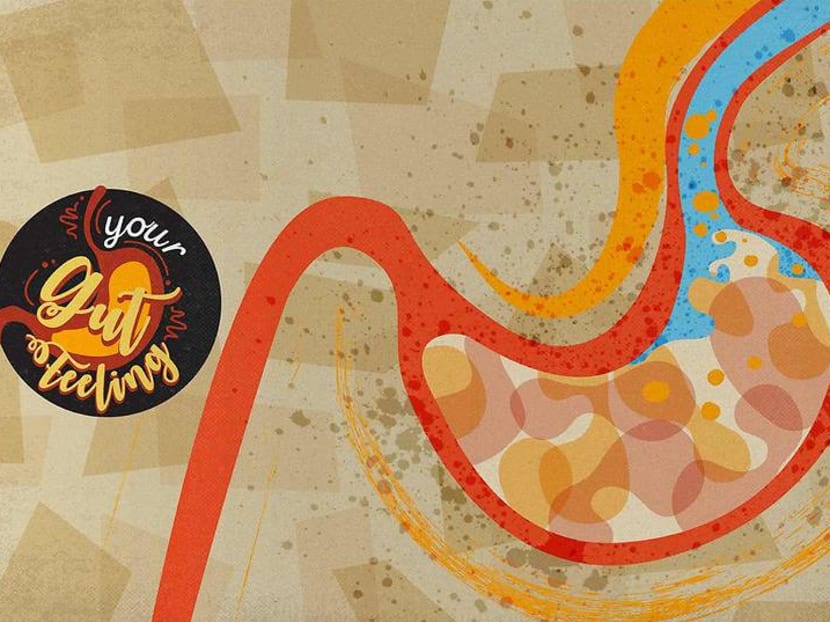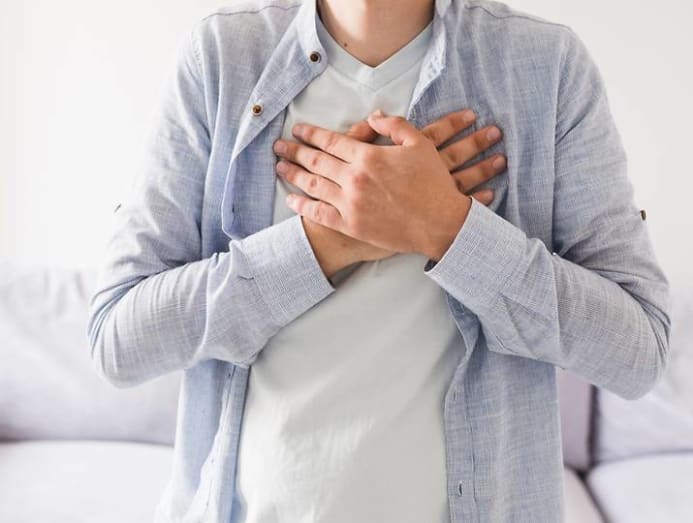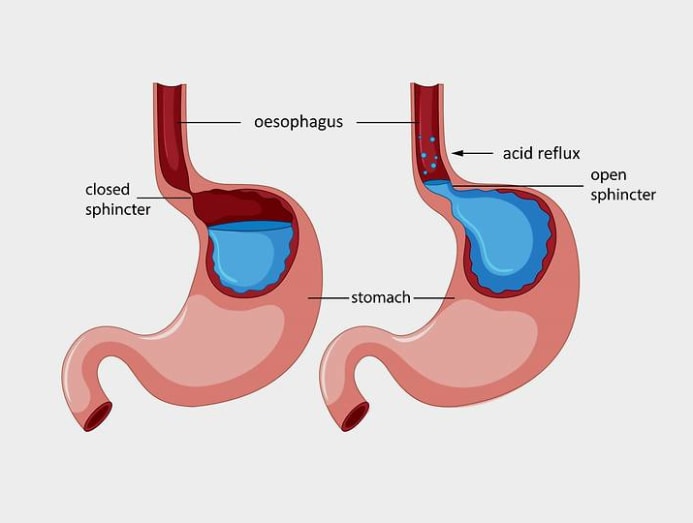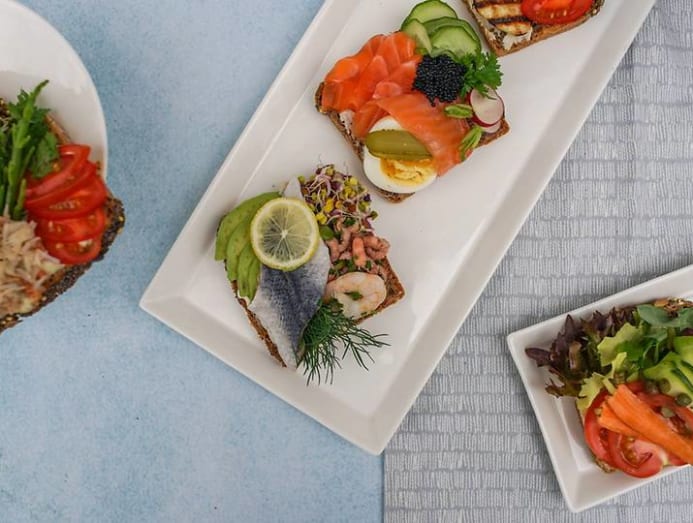Ageing and why you can't enjoy a big meal without getting heartburn like before
Your Gut Feeling is an ongoing series on digestive health. In this final instalment, find out why you may be more prone to acid reflux that causes heartburn the older you get.

(Art: Chern Ling)
Eating is one of the greatest pleasures in life, and you might feel like your body has let you down when your digestive system starts to turn in a less-than-stellar performance as you age.
What’s up with your body? In this instalment of My Gut Feeling, we look at heartburn.
WHAT’S HAPPENING IN MY GUT?
You used to enjoy sumptuous buffets of every kind. Steamboat and hefty steak dinners? The bigger, the better. The more, the merrier.
There was nothing you could put into your mouth that your stomach couldn’t handle, not even regular late-night suppers of prata, mee goreng and all the teh halia you could chug.
READ: Why you might become allergic to shellfish, nuts or even bird’s nest with age
But lately, your digestive system seems to be acting up, especially after a big meal. Your digestive juices feel like they’re flowing back up your oesophagus. You know that’s happening because you can feel a burn in your chest and a bitter, sour taste at the back of your throat: All classic signs of heartburn.

More unusually, “a persistent sore throat and chronic cough” can also be signs of acid reflux, said Adjunct Associate Professor Reuben Wong, a gastroenterologist at gutCARE Gleneagles.
If signs of acid reflux keep occurring – more than twice a week – you may have gastroesophageal reflux disease or GERD, according to the Healthline website.
If signs of acid reflux keep occurring – more than twice a week – you may have gastroesophageal reflux disease or GERD.
So why don’t the digestive juices stay where they should be – your stomach?
Usually, the lower oesophageal sphincter (LES), a circular band of muscle found at the end of the oesophagus, tightens and closes after you swallow to hold the digestive juices in the stomach.
But when the LES isn’t working properly, the digestive juices escape, creating that familiar burning sensation in the chest.
WHY IS IT ONLY HAPPENING NOW THAT I’M OLDER?
There are a few reasons why you have acid reflux or GERD.
One, the LES begins “to get lax and is not as tight”, said Dr Wong. Just like the other muscles in your body, the LES also weakens with age.
READ: Is it just indigestion? Why it's harder to enjoy buffets and suppers as you get old
Another reason is your gut motility, said Dr Wong. As you get older, your gut motility slows down, which means that “food doesn’t empty out of the stomach rapidly enough, resulting in a higher chance of it backing up into the oesophagus”, he explained.

If you’re wondering why you’re experiencing heartburn while your counterparts at work can still happily order up large servings of fried beehoon for breakfast, it really is the luck of the anatomical draw.
“Each person is special and unique, and there are small differences in anatomy that can result in this,” said Dr Wong.
READ: Bye bye, ice cream and milk tea? Lactose intolerance gets worse with age – here's why
Also, the older you get, the more health issues can crop up – and they, along with the medication you take for them, can boost the heartburn.
“Some blood pressure and antidepressant medications can cause heartburn,” said gastroenterologist Dr Scott Gabbard with Cleveland Clinic on its website. “Being overweight and taking certain medications may be the major driving factors for heartburn.”
WHAT’S THE SOLUTION?
If you’re averse to taking medicine, you’ll be glad to know that “lifestyle measures can be surprisingly effective”, said Dr Wong.
“These include eating smaller portions at each meal, and not eating or drinking two hours before bedtime.” Losing and managing your weight also help, he added.

Another trick is to avoid certain foods, said Dr Jacqueline Wolf, a gastroenterologist and associate professor of medicine at Harvard Medical School.
These include mint, fatty foods, spicy foods, tomatoes, onions, garlic, coffee, tea, carbonated drinks, chocolate and alcohol. Best to quit smoking, too, as nicotine relaxes the LES, she said.
READ: Can't eat too much spicy food these days? The link between getting old and chilli
After a meal, try to avoid vigorous exercise for a couple of hours, advised Dr Wolf on the Harvard Health Publishing website.
This can help the digestive acid stay in the stomach instead of sending it into your oesophagus, especially if the activity involves bending over.
When it comes to sleeping, it may be a good idea to raise your head 15cm to 20cm higher than your feet. A foam wedge is a better bet than stacked pillows as the latter doesn’t create a uniform support, said Dr Wolf.
But if you’re keen to try medications, there are acid suppressants such as proton pump inhibitors as well as antacids to neutralise acid in the oesophagus, said Dr Wong.
“In severe persistent cases, there is a surgical option known as a fundoplication to tighten the LES.”





